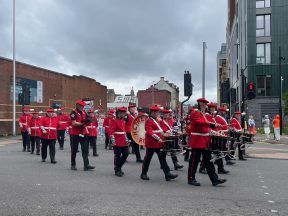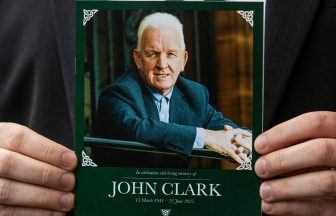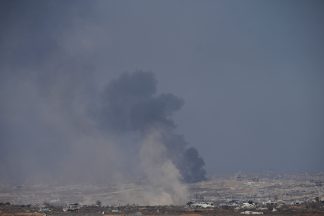It is the oldest international football fixture, and it dates from 1872.
It speaks to the origins of the game, to intense rivalry, to supporters defined by passion and colour, and of the fixture’s fortifying ability to raise the spirits.
Tonight, at Hampden Park, the latest instalment in an old rivalry with the “Auld Enemy” will play out in an atmosphere that will thunder all of the way to the heavens.
What will put a spring in the step of the Tartan Army is a growing, and now perceptible belief, that the current Scotland squad of players is capable of taking on and competing with nations more elevated in the international standings.
This, of course, is a “friendly” but I doubt if many within Hampden will see it that way. Let’s just hope the fare on offer does justice to the heritage of this fixture.
A trip down memory lane is a history of highs, lows, and the odd bit of emotional equilibrium that comes when a match is drawn.
On the debit side of the joy ledger, the date of April 15, 1961, sears deeply. England triumphed by 9-3 that day.
A Jimmy Greaves hat-trick put a Scotland team to the sword. It was all the more impressive since those playing in blue included Denis Law, Ian St John and Dave Mackay.
Years later, the former Rangers player Bobby Shearer made mention of the fact that the Scotland goalkeeper was Celtic’s Frank Haffey and that there were three Rangers players on the field that day.
Shearer said “they played with an orange ball and the joke was the Rangers players wouldn’t kick it and Frank Haffey wouldn’t handle it”.
There was no greater result than the 1967 Wembley triumph when Scotland defeated world champions England 3-2, courtesy of goals by Denis Law, Bobby Lennox and Jim McCalliog. Some 99,000 spectators witnessed the five- goal thriller.
An enduring image of the day that underlined the swagger of the victory, was the sight of Jim Baxter playing keepy-uppy with the ball. It was a potent picture that said, today WE are world champions.
As a youngster who followed the now defunct Home International Championships, the 1977 Wembley fixture is emblazoned on the brain.
I can recall the images of the packed trains as they headed out of Scotland. The throng of tartan as it made its way to Wembley and the din inside the stadium that accompanied a frenetic waving of flags.
A 2-1 victory was delivered courtesy of goals from the late Gordon McQueen and Kenny Dalglish, but the day is remembered for the post- match “celebrations”.
A pitch invasion by Scottish supporters – drunk with happiness, as well as the contents of cans and bottles – led to the goalposts collapsing and the Wembley turf being dug up as the pitch was defiled to provide a lasting memento of a famous occasion.
Although essentially good-natured, the invasion was unacceptable as the football authorities, quite rightly, came to view such events as representing a danger to spectator safety.
By the 1990s, the difference in quality between the English and Scottish leagues became stark. Club sides couldn’t compete financially. A “gap” opened, which has never been bridged, and on the international stage too, it cast the Scots as perennial underdogs.
At the 1996 European Championships, England won 2-0 at Wembley, thanks to a piece of brilliance from Paul Gascoigne.
By the late 1980s, the fixture had ceased to be an annual event as money became a defining issue in the game and the notion of the home teams regularly competing with one another simply seen as a facet of the past.
But the fixture still has an allure that at its best still gets folk talking well after the final whistle.
Both teams came together at Hampden in a World Cup qualifying match on June 10, 2017.
England looked to be heading for a victory by a goal to nil until a certain Leigh Griffiths hit one of the greatest free-kicks of his career. Drawing level triggered an explosion of joy, just three minutes from full-time.
What followed was an advert for the ability of football to shred the emotions. Three minutes later, on the ninetieth minute, Griffiths hit another free kick, even more majestic than the first, into the England net. Has the decibel level at Hampden ever been higher?
As an improbable victory beckoned, Harry Kane equalised for England in the third minute of injury time. To toy with the emotions in the way in which that Kane goal did, seemed an act of cruelty. But that’s football and it is why it is followed by addicts worldwide.
Let’s hope that tonight’s offering has a nod to great games that live in the memory. As a sport, football’s ability to entertain is difficult to match.
It is called the beautiful game for a reason. When played at pace by team’s intent on attack, technically gifted footballers are capable of delivering an emotional experience that is normally the preserve of artists.
The starting line-up have no pens or paintbrushes but with their feet they hope to write a fresh page in the history of this fixture. Let’s hope by late evening it proves to be a joyous read.
Follow STV News on WhatsApp
Scan the QR code on your mobile device for all the latest news from around the country


 SNS Group
SNS Group




















